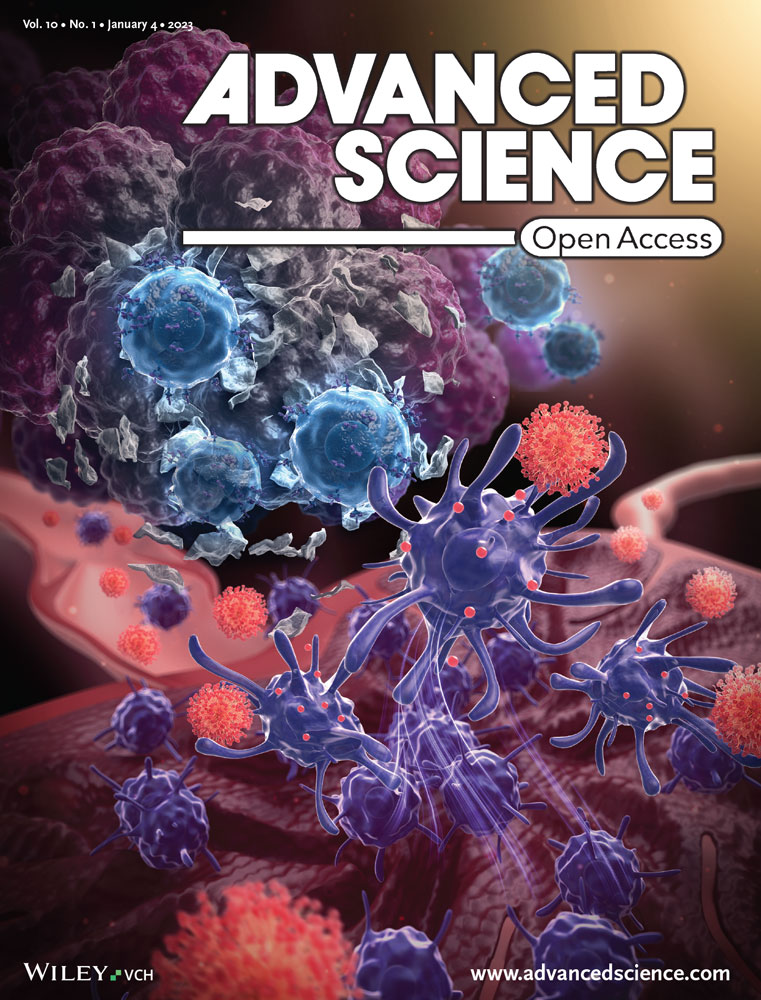Polymeric Multivalent Fc Binding Peptides‐Fabricated Clinical Compounding Bispecific Antibody Potentiates Dual Immunotherapy Targeting PD1 and CTLA‐4
Abstract
Dual Opdivo plus Yervoy immunotherapy, targeting the immune checkpoints PD1 and CTLA-4, is successful in clinical use. However, it is associated with a high incidence of adverse events, and its therapeutic efficacy needs improving. In this study, polymeric multivalent Fc-binding peptides (PLG-Fc-III-4C) are employed to fabricate a bispecific antibody (PD1/CTLA-4 BsAb) to potentiate dual immunotherapy targeting PD1 and CTLA-4. The PD1/CTLA-4 BsAb is prepared by mixing PLG-Fc-III-4C with aPD1 and aCTLA-4 in an aqueous solution for 3 h using the clinically optimal 3:1 proportion of aPD1 to aCTLA-4. PD1/CTLA-4 BsAb significantly inhibits tumors in MC38 colon cancer-bearing mice more effectively than the combination of aPD1 and aCTLA-4, with tumor suppression rates of 96.8% and 77.3%, respectively. It also induces a higher percentage of CD8+ T cells and increases the secretion of effector cytokines while reducing Treg levels in tumors compared to phosphate-buffered saline, indicating significant tumor immunity regulation. Mechanistically, a 6.3-fold increase in PD1/CTLA-4 BsAb accumulation in tumors due to the tumor targeting ability of aPD1, and the PD1/CTLA-4 BsAb significantly reduces the adverse colitis event in healthy mice, compared to aPD1 and aCTLA-4. Thus, these findings provide a novel approach to enhance antitumor therapy using aPD1 and aCTLA-4.





